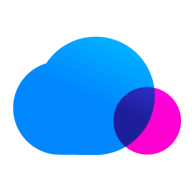

Apache Spark and Spot by Flexera are key players in data management and cost optimization. While Apache Spark is favored for its aggregate processing capabilities, Spot by Flexera is notable for its cost optimization features.
Features: Apache Spark is recognized for high-speed processing, in-memory computation, and seamless integration with other systems. Spot by Flexera offers automated cost optimization, insightful resource management, and efficient cloud infrastructure management.
Room for Improvement: Apache Spark could improve in its pricing transparency, ease of use for non-technical users, and customization capabilities. Spot by Flexera may benefit from expanded documentation, enhanced user interface design, and improved support for diverse cloud environments.
Ease of Deployment and Customer Service: Apache Spark provides extensive documentation and wide compatibility, easing deployment processes with strong community support. Spot by Flexera simplifies cloud cost management with straightforward integration, backed by proactive customer service that enhances reliability.
Pricing and ROI: Apache Spark generally has lower setup costs, offering scalability for organizations with existing infrastructure. In contrast, Spot by Flexera might have higher initial costs, but the significant ROI arises from major reductions in cloud spending and effective resource optimization.
I cannot share the exact number, but I can share the figure that my EC2 and EKS compute cost reduced by around 65 to 75% with Spot.
Our technology predicts demand, selects the cheapest instance mix, sizes the workloads appropriately, and scales it automatically based on policy, resulting in significant savings by reducing manual work and enhancing our flexibility, which has helped accelerate our deployments.
I have received support via newsgroups or guidance on specific discussions, which is what I would expect in an open-source situation.
I would rate the customer support a nine out of ten.
Spot's scalability is quite good, and it can be expanded to multiple environments.
Apache Spark resolves many problems in the MapReduce solution and Hadoop, such as the inability to run effective Python or machine learning algorithms.
Without a doubt, we have had some crashes because each situation is different, and while the prototype in my environment is stable, we do not know everything at other customer sites.
Various tools like Informatica, TIBCO, or Talend offer specific aspects, licensing can be costly;
Continuously making advancements based on customer feedback.
More guided onboarding would help teams adopt advanced features faster.
Spot could be improved by adding features that help identify data to optimize storage costs by detecting datasets within our environment based on criteria such as age and usage.
The pricing is reasonable and convenient, and the value it offers is completely in line with what I am spending.
Not all solutions can make this data fast enough to be used, except for solutions such as Apache Spark Structured Streaming.
The solution is beneficial in that it provides a base-level long-held understanding of the framework that is not variant day by day, which is very helpful in my prototyping activity as an architect trying to assess Apache Spark, Great Expectations, and Vault-based solutions versus those proposed by clients like TIBCO or Informatica.
Spot's automated cost optimization works by continuously analyzing the workload and applying policies to minimize cloud spend without sacrificing performance.
The fact that it can mix dozens of instance families dynamically is something which the AWS native autoscalers simply cannot do.
One use case we plan to implement within the next few months is the overall commitment savings, which we used to manage manually, but with Spot, it automatically helps us detect when and what kind of instances to purchase, making it easier for us to manage our overall commitment for the savings plan.
| Product | Market Share (%) |
|---|---|
| Apache Spark | 10.4% |
| Spot by Flexera | 4.3% |
| Other | 85.3% |

| Company Size | Count |
|---|---|
| Small Business | 28 |
| Midsize Enterprise | 15 |
| Large Enterprise | 32 |
Spark provides programmers with an application programming interface centered on a data structure called the resilient distributed dataset (RDD), a read-only multiset of data items distributed over a cluster of machines, that is maintained in a fault-tolerant way. It was developed in response to limitations in the MapReduce cluster computing paradigm, which forces a particular linear dataflowstructure on distributed programs: MapReduce programs read input data from disk, map a function across the data, reduce the results of the map, and store reduction results on disk. Spark's RDDs function as a working set for distributed programs that offers a (deliberately) restricted form of distributed shared memory
Spot by Flexera provides automated cost optimization and container management with multi-cloud integration, achieving up to 70% savings and greater efficiency. It adapts to demand changes using AI-driven insights.
Spot enables organizations to optimize cloud infrastructure in environments such as Kubernetes, AKS, EKS, and AWS. It offers advanced automation features for managing resources, leading to reduced overhead and increased production output. Spot's intelligent autoscaling and node replacement capabilities enhance scalability and reliability. While the platform lacks some granularity in EKS Kubernetes insights, it remains stable and mature, helping organizations minimize costs and improve resource utilization. Opportunities for improvement include OCI support, more detailed multi-cloud integrations, and enhanced Kubernetes insights.
What features does Spot by Flexera offer?In industries heavily reliant on cloud-based services, Spot by Flexera is crucial for optimizing resource management and cost efficiency. Organizations leveraging Spot in sectors like technology and finance benefit from real-time optimization techniques and improved governance processes.
We monitor all Compute Service reviews to prevent fraudulent reviews and keep review quality high. We do not post reviews by company employees or direct competitors. We validate each review for authenticity via cross-reference with LinkedIn, and personal follow-up with the reviewer when necessary.